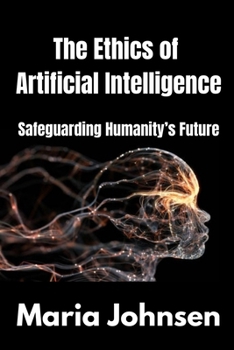The Ethics of Artificial Intelligence: Safeguarding Humanity's Future
The Ethics of Artificial Intelligence: Safeguarding Humanity's Future presents a rigorous, interdisciplinary inquiry into the ethical, philosophical, and societal implications of artificial intelligence in the 21st century. As AI systems increasingly influence global structures from education and employment to surveillance, healthcare, and international relations this volume interrogates the challenges and responsibilities that arise at the intersection of technology and humanity.
Spanning thirty comprehensive chapters, this book offers a scholarly framework for examining the moral complexities of AI-driven transformation. It addresses foundational philosophical questions about identity, autonomy, and consciousness, while engaging with urgent policy debates on regulation, equity, misinformation, and accountability.
Key topics include:
The philosophical and ethical foundations of AI in relation to human identity
The restructuring of social contracts in the digital era
Education, creativity, and cognitive agency in AI-augmented environments
AI's role in global governance, surveillance, misinformation, and law enforcement
Healthcare innovations and ethical risks posed by AI systems
The automation of labor and its implications for human dignity and purpose
Psychological and relational dimensions of human-AI interaction
Emerging frontiers: transhumanism, conscious AI, and the singularity
Designed for scholars, graduate students, policymakers, and professionals across fields such as philosophy, computer science, law, ethics, political science, and education, this work serves as both a critical reference and a visionary call to action. The Ethics of Artificial Intelligence: Safeguarding Humanity's Future challenges readers to engage deeply with the values that must guide technological progress in a rapidly evolving digital world.





